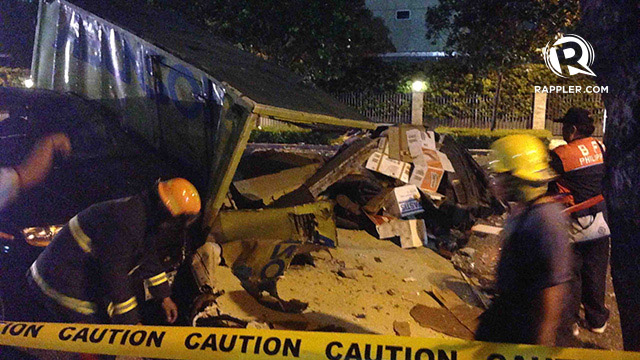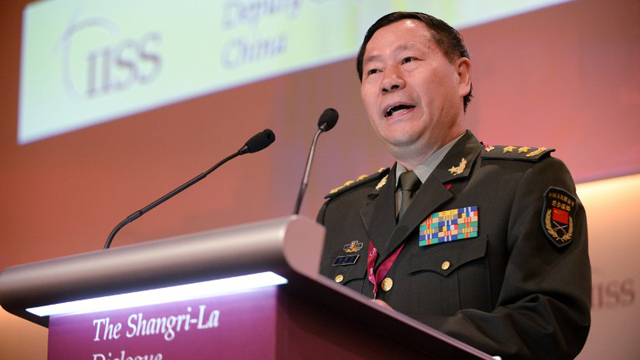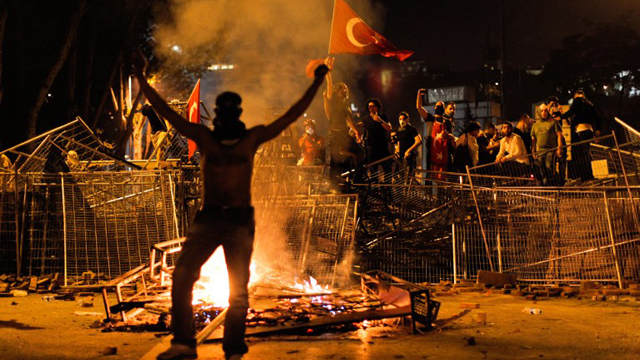SUMMARY
This is AI generated summarization, which may have errors. For context, always refer to the full article.
- K-12 and hope on the first day of school

As students troop back to school Monday, 53 high achieving college graduates prepare for their first day teaching in public schools. They are fellows of Teach for the Philippines, a partner of Teach for All, a global network that recruits and trains talented college graduates to teach in public schools for two years. In the Philippines, 58% of Filipino students do not graduate from high school, according to the 2008-2009 Philippine Human Development Report. TFP is hoping to address the shortage of teachers by getting future leaders to devote two years of their lives for a child’s future. TFP has also partnered with the Department of Education (DepEd), which identified the schools and areas with the greatest need. This school year also marks the implementation of the K-12 program after President Benigno Aquino signed it into law on May 15.
The implementation of the Universal Kindergarten began in SY 2011–2012. The enhanced curriculum for Grade 1 and Grade 7 was rolled out in SY 2012–2013, and will be progressively introduced in the other grade levels in succeeding school years. The first batch of high school students to go through K to 12 will graduate in March 2018. The program adds 2 years to basic education with the aim of increasing students’ skills and competitiveness. - What caused the Serendra blast and its aftermath?

Interior Secretary Mar Roxas says authorities are focusing on gathering evidence from the Two Serendra condominium unit in Global City, Taguig, where a deadly blast occurred on May 31.
Investigation is centered on Unit 501B – the “blast site” – as authorities finished scouring through the street portion of the “crime scene.” Roxas says authorities want to interview occupants of the condominium to help establish a “narrative timeline” of events. Investigators are particularly interested in the unit’s occupant Angelito San Juan, who is now in intensive care at St. Luke’s Medical Center. Police has not determined the cause of the explosion. Roxas says 3 teams of bomb-sniffing dogs initially found no residue of bombs or explosive devices in the area. The explosion that occurred shortly past 8 pm on Friday knocked out the wall of the Serendra unit, sending a huge chunk of rubble that pinned down a delivery truck. Three were killed — Marlon Castillo Bandiola, 29; Jeffrey Cunanan Umali, 32, from Sta Mesa, Manila; and Sallymar Natividad, 41, from Bulacan. - What does 7.8% Q1 PH growth mean?

Socioeconomic Planning Secretary Arsenio Balisacan says the first-quarter 7.8% GDP growth, the strongest growth under the Aquino administration, will have a greater impact on the lives of Filipinos if sustained over a long period. Balisacan adds the growth should be driven mainly by the industry sector, particularly manufacturing and construction, to generate the jobs that Filipinos need. The industry sector, in turn, should be driven by increased and sustained flow of domestic and foreign investments. The Philippines’ foreign direct investments amounted to only $2 billion in 2012, while neighbors had more than 5 times the amount. “The domestic economy is so much awash with cash… What we hope is that because of this business confidence, and the good fundamentals of the country, all this money sitting there could, eventually, become physical investments rather than financial investments so we can create jobs. In the end, it’s really investment that paces the employment generation.” Balisacan said. He adds, a steady but increasing pace of growth is what the government wants to achieve, breaking the country’s boom and bust cycle. “If we succeed in keeping the momentum even beyond 2016, the country should be able to join the likes of Thailand and Malaysia,” Balisacan said. In the past, growth was driven by consumption fueled by overseas Filipino worker remittances.
Read more on Rappler. - China defends its patrols

A top general of China’s People’s Liberation Army says Chinese warships will continue to patrol waters where Beijing has territorial claims, despite rows with neighboring countries over the South China Sea and islands controlled by Japan. Lieutenant General Qi Jianguo, deputy chief of the general staff of the People’s Liberation Army, says the patrols are legitimate and China’s sovereignty over the areas could not be disputed. Qi was responding to a question from a delegate at a security conference in Singapore, after he gave a speech in which he sought to assure neighboring countries that China has no hegemonic ambitions. In his speech, Qi says, “China has never taken foreign expansion and military conquering as a state policy.” One delegate though said China’s peaceful intentions were inconsistent with its sending naval patrols to disputed waters. Qi responds, “Our attitude on East China Sea and South China Sea is that they are in our Chinese sovereignty…So the Chinese warships and the patrolling activities are totally legitimate and uncontroversial.” China is locked in a territorial dispute with Brunei, Malaysia, the Philippines and Vietnam in the South China Sea. Manila last month protested what it called the “provocative and illegal presence” of a Chinese warship near Second Thomas Shoal, which is occupied by Philippine troops.
Read more on Rappler. - US & China to talk about hacking

The United States and China agree to hold high-level talks on rules of behavior for cybersecurity and commercial espionage. The diplomatic move addresses what the United States alleges as computer break-ins and corporate and government secret theft on a daily basis. The talks will begin in July. American officials say they do not expect an immediate respite from the daily intrusions. Security officials call it the “greatest transfer of wealth in history.” Hackers have reportedly stolen secrets ranging from negotiating strategies, schematics for fighter jets and gas control systems. Beijing insists it is the victim of cyberattacks, not the perpetrator. The Pentagon claims it has compiled extensive evidence of a unit of the People’s Liberation Army, Unit 61398 outside Shanghai, as the group behind the sophisticated attacks. Analysts and economists say that if China is to keep its annual economic growth rate of 7 or 8 percent, it needs a steady inflow of new technology. The Chinese are expected to hit the Americans on their use of cyberweapons. China often cites the US and Israel’s cyberattacks on Iran’s nuclear program as evidence against Washington.
Read more on Rappler. - Park demolition protest snowballs into massive unrest

Now on its third day, what began as a small sit-in to protest the demolition of a park in Taksim Square has snowballed into the biggest protest movement against Turkey’s prime minister, Recep Tayyip Erdogan. Violence broke out Friday spilling into Saturday. Police withdrew Saturday night following 36 hours of clashes. Demonstrators built barricades in the square entrance. On Sunday, protester who are still in control of the square chant “Tayyip resign” as they hurl rocks and police fired back with tear gas. Turkey’s news agency reports around 700 people have been detained since Tuesday, and most have been released. Andalou News Agency says 58 people are in the hospital and 115 government forces have been injured. Over the past four days, protests in 67 of Turkey’s 81 provinces also broke out. Erdogan admitted on the second day that police action in the Istanbul protests may have been “extreme.” Many demonstrators say their fury is not just about the plan to demolish the last green space in central Istanbul. They say it’s about freedom of speech and the government’s dictatorial tendencies. Erdogan was elected 10 years ago. He is accused of trying to make the predominantly Muslim but staunchly secular country more conservative.
Read more on CNN. - Intl aid groups: evacuate Qusayr

International aid organizations appeal to Syrian rebels and government forces to allow civilians trapped in the city of Qusayr to be evacuated, as rebel forces brace for a fresh attack by the army and its Hezbollah allies. UN agencies and the International Committee of the Red Cross demand both sides to allow civilians to leave, including an estimated 1,500 wounded. Qusayr is home to about 30,000 people. The fighting began two weeks ago with the regime’s attempt to gain control of the strategic city bordering Lebanon. The control of Qusayr is essential for rebels because it is their principal transit point for weapons and fighters from across the border. The powerful Lebanese Shiite group, a staunch ally of President Bashar al-Assad’s regime, dispatched thousands of fighters to help put down the uprising. Activists in Syria say escape routes for civilians have become unsafe, with evacuees being attacked by Syrian forces. UN emergency relief coordinator Valerie Amos and High Commissioner for Human Rights Navi Pillay say there is “an urgent need of immediate evacuation for emergency medical treatment”.
Read more on Aljazeera.
Read more on Rappler. - Nuclear power for the PH?

State-run power firm National Power Corporation is hoping the government considers the proposed $1 billion rehabilitation plan for the 29-year-old Bataan Nuclear Power Plant. The $1 billion rehabilitation cost will mostly be spent on upgrades and replacements of about 25% of the facility’s equipment. Napocor nuclear energy core group manager Mauro Marcelo Jr. says Malacañang’s go signal is necessary in reviving the plant to address a possible power crisis in the country. Marcelo says the BNPP can generate 620 MW of power and can supply the 10% power requirement of the Luzon grid. He adds, nuclear power is cheaper and will bring down the high costs of electricity in the country. The BNPP is considered the “single largest debt item of the Philippines,” costing US$2.3 billion. Operations have been delayed since construction was completed in 1984 because of safety and environmental concerns and corruption in the contract process. The nuclear facility was shelved indefinitely after the devastating Chernobyl incident in Russia in April 1986.
Read more on Rappler. - Charice comes out

In a tell-all television interview Sunday, international Filipino singer Charice Pempengco responds to rumors about her sexuality and admits she’s a lesbian. Speaking to The Buzz host Boy Abunda, the young singer says she feels light and free now that she has come out. Charice thanks the people who understood her and apologizes to her family and the fans whom she may have disappointed. She says, “I am doing this because I am proud of myself. To my fans, I know a lot of you are disappointed. Some of you may turn your backs on me…From the bottom of my heart, I’m sorry. I understand.” Charice also answers questions about her alleged relationship with X-Factor’s AKA JAM member Alyssa Quijano, saying Quijano is an “inspiration.” The singer first caught international attention in 2007 after talk show host Ellen Degeneres discovered her YouTube videos and invited her to perform. Charice’s career skyrocketed since, with the release of her debut album in 2008 and a role in popular American TV show “Glee.” She is most famous for chart-topper song “Pyramid,” a collaboration with international star Iyaz.
Read more on Rappler. - Michael Douglas: cancer caused by oral sex

Movie star Michael Douglas reveals his throat cancer — long assumed to be related to his smoking and drinking habits — was caused by performing oral sex. In an interview with The Guardian, the actor says, “Without wanting to get too specific, this particular cancer is caused by HPV [human papillomavirus].” The 68-year-old husband of Catherine Zeta Jones was diagnosed with stage four cancer in August 2010. Douglas is now more than two years clear of cancer after going through an intensive eight-week course of chemotherapy and radiation. HPV is a sexually transmitted virus thought to be responsible for an increasing proportion of oral cancers. But a study released Saturday says there is no need for patients with cancer from an oral HPV infection to refrain from sex with their partners. Gypsyamber D’Souza, an epidemiology professor at Johns Hopkins University in Maryland, says partners of patients with oral cancer did not have a significantly higher risk of developing the disease. D’Souza adds long-term partners have likely already been exposed to the virus and managed to “clear” it.
Read more on The Guardian.
Read more on Rappler.
Add a comment
How does this make you feel?
There are no comments yet. Add your comment to start the conversation.